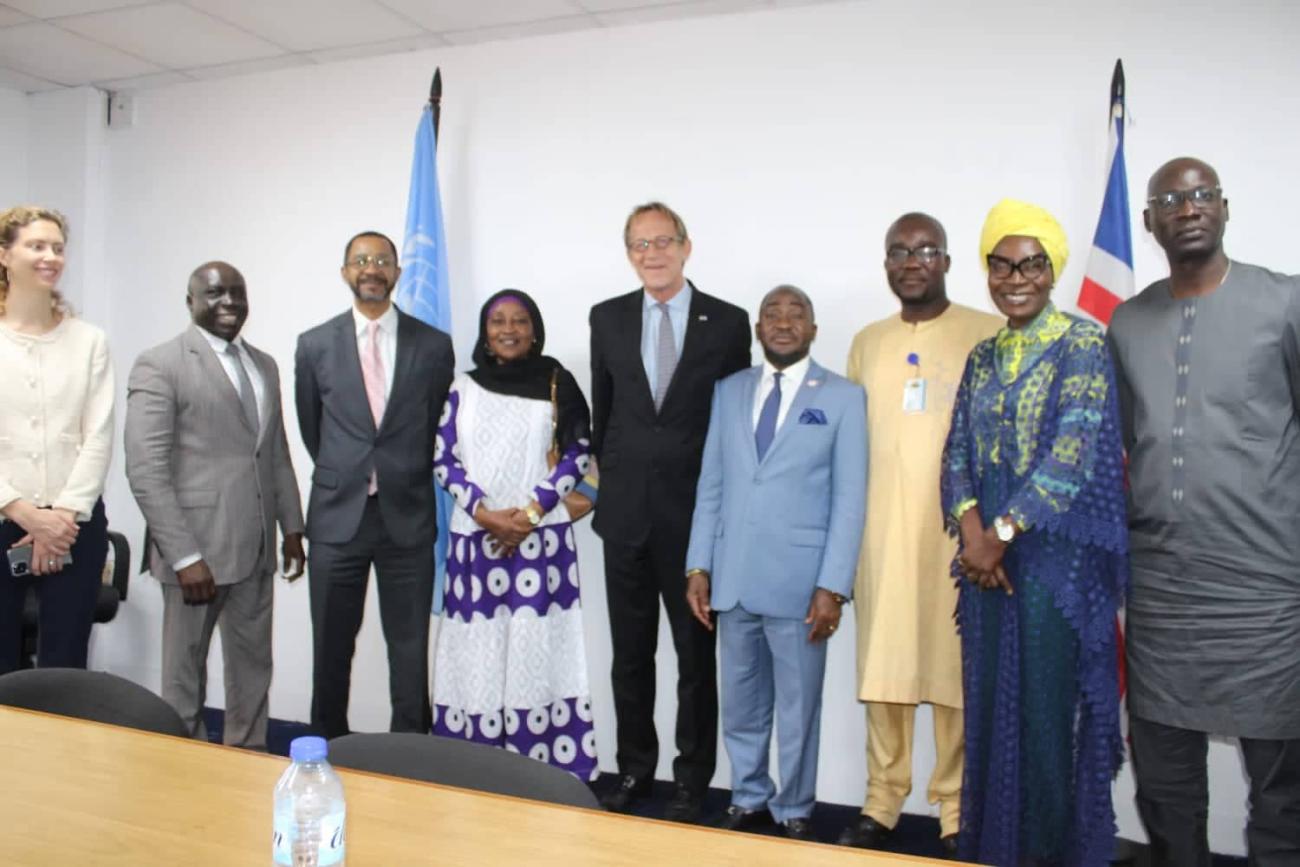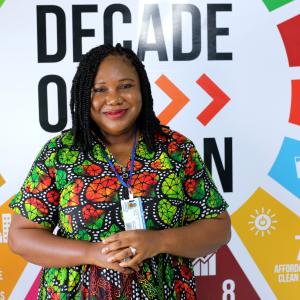H.E. Ms. Anna Karin Eneström, Permanent Representative of Sweden to the United Nations and Chair of the Liberia Configuration of the Peacebuilding Commission (PBC), convened the meeting to discuss continued support to building and sustaining peace in Liberia, with a focus on gender equality and women’s empowerment, including eliminating gender-based violence and promoting women’s political participation in the context of the upcoming presidential and legislative elections of 2023.
Participants in the PBC Liberia configuration meeting heard from the Government of Liberia, represented by H.E. Mr. Dee-Maxwell Saah Kemayah, Sr., Minister of Foreign Affairs and H.E. Mrs. Williametta E. Saydee-Tarr, Minister of Gender, Children and Social Protection. Niels Scott, UN Resident Coordinator in Liberia and Cllr. Dr. Yvette Chesson-WurehCo-Chair of FemWise, Initiator of the award winning Women’s Situation Room and Establishment Coordinator of the Angie Brooks International Centre, also briefed the meeting.
Members of the Configuration were also invited to provide inputs for the Chair’s visit to Liberia (4-9 June 2022).
See remarks from the UN Resident Coordinator, Niels Scott, at the occasion below:
H.E. Ms. Anna Karin Eneström
Chair, and
Distinguished members of the Peacebuilding Commission Configuration for Liberia
Hon. Dee Maxwell Sahr Kemayah Snr.
Minister of Foreign Affairs of the Republic of Liberia
Hon. Williametta Piso Saydee-Tarr
Minister of Gender, Children and Social Protection
Excellencies, Members of the Diplomatic and Counselor Corps in New York and Liberia
Cllr. Dr. Yvette Chesson-Wureh
Co-Chair of FemWise and Establishment Coordinator of the Angie Brooks International Centre
UN colleagues in New York and here in Liberia
To ensure gender equality becomes a reality for all women and girls in Liberia, profound changes are needed in all sectors. This requires persistence, bold and practical ways to break down the barriers that continue to hold women and girls back, and a long-term vision and commitment. Allow me therefore to warmly commend Her Excellency, Ms. Anna Karin Eneström, Chair, and members of the Peacebuilding Commission Configuration for Liberia, for bringing additional focus to an issue that remains elusive. Despite some progress, much more needs to be done to tackle gender inequality comprehensively, and increase women’s rights, opportunities and political participation. Permit me to focus on two areas: women in leadership and sexual and gender-based violence.
Women in leadership
Madam Chair, there is widespread agreement that women continue to be severely underrepresented in politics, a prominent weakness in Liberia’s political landscape. With women occupying merely 8 of the House of Representatives’ 73 seats and 2 of 30 Senators’ seats, it is clear that female candidates entering the Liberian political arena tend to face more obstacles than their male counterparts. Arguably, the introduction of a 30 per cent gender quota on candidate listings can encourage more women to run for office and improve female representation in the Liberian legislature. Doing so is one way to ensure inclusivity, equality, and genuine democracy.
After years of persistent advocacy and engagement, the House of Representatives passed the Electoral Reform Bill and it is our understanding that the Senate Committees on Autonomous Agencies, Elections and Judiciary are expected to submit the Bill to Senate plenary for deliberations, today, 19 May and, hopefully, receive concurrence. The House voted to amend Section 4.5 of the 1986 election law which sets aside an exclusive 30 per cent for women representation in every political party during the submission of candidates to the National Elections Commission (NEC). Section 4.5 (1d) of the Elections Law Amendment Act also calls for a Political Party or Coalition to have at least one female contestant for every primary at a convention for each constituency. The punishment for defaulting political parties is that their candidate listing will be rejected by the Elections Commission and the affected party may be entitled to re-submit within the required period. This is a huge step on the way to achieving gender parity.
However, the quota will not insulate women active in political life against prejudice, discrimination and acts of psychological and physical violence when they join a field from which they have been traditionally excluded. This phenomenon is not unique to Liberia, nor is it new. Women running for political office in Liberia defy social norms and are often considered as intruders – scrutinised, stigmatised, and targeted – not only by their political rivals but by almost everyone, including the media, communities, or even families. This in turn directly hinders progress on the Sustainable Development Goals and 2030 Agenda. The United Nations in Liberia will continue to pay particular attention to advancing women’s political participation, to ensure that decision-making processes are participatory, responsive, equitable and inclusive.
Violence against women and girls
The prevalence of sexual and gender-based violence remains high in Liberia, and the rise in rape cases is alarming, especially of minors. It is estimated that at least 38.2 per cent of girls and women aged 15-49 have undergone female genital mutilation (FGM), which is considered a serious human rights violation, and an extreme form of violence. With support from the EU-UN Spotlight Initiative, alternative economic livelihood activities are being provided for traditional practitioners who operate Sande schools in order to provide alternative sources of income replacing FGM, among others.
In February 2022, Chief Zanzan Kawa, head of the National Traditional Council of Chiefs and Elders of Liberia announced a three-year ban on FGM. This bold step is a positive stride towards the protection of women’s and girls’ rights in the country, and the United Nations commends the Government of Liberia for this. However, effective monitoring and holding violators accountable remains a challenge.
Madam Chair, Excellencies, in our regular Ambassadorial-level meeting on 6 May, on progress on FGM, the Minister of Internal Affairs and Chief Zanzan Kawa made it clear that criminalising the practice of FGM in Liberia will not eliminate the practice. It is increasingly clear that ending FGM in Liberia must be led by women at the local level; it is after all their body, their rights. Such credible people within communities are best placed to change from the bottom up.
I would like to conclude by underscoring that, collectively, we need to do more, design and implement better policies, demand accountability and focus on local communities. Achieving gender equality in Liberia is no small task. If we continue at the current snail rate, Liberia may not achieve gender parity in the next 50 years.
I also call on the Configuration to continue to bring a strategic approach and coherence to gender equality and women’s empowerment in Liberia and to remain seized of the electoral process, and its potential to trigger and escalate conflict if not managed properly.
Finally, Madam Chair, we look forward to welcoming you in Liberia in about two weeks.
Thank you for your attention.




